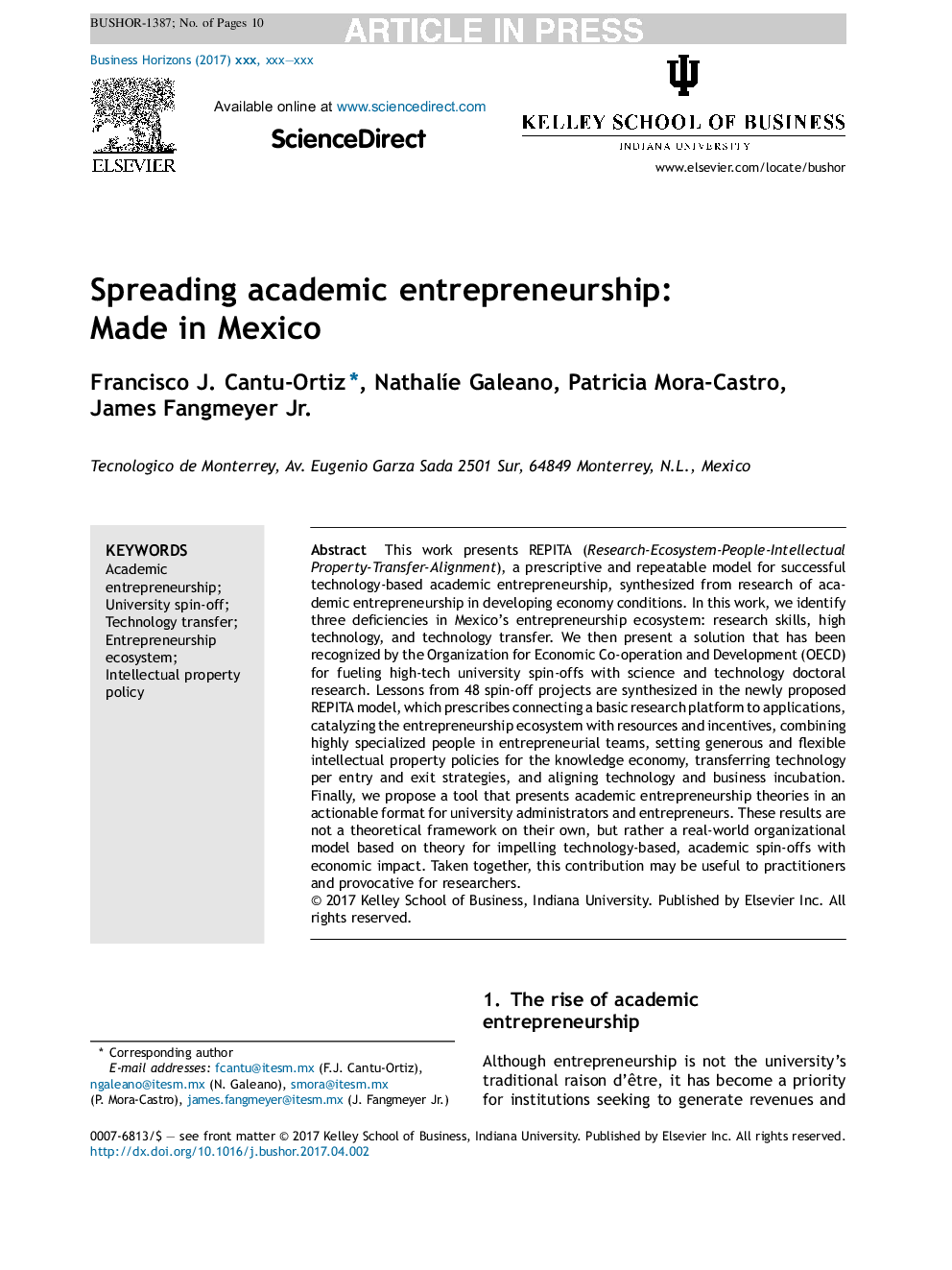ترجمه فارسی عنوان مقاله
گسترش کارآفرینی دانشگاهی: ساخته شده در مکزیک
عنوان انگلیسی
Spreading academic entrepreneurship: Made in Mexico
| کد مقاله | سال انتشار | تعداد صفحات مقاله انگلیسی |
|---|---|---|
| 103747 | 2017 | 10 صفحه PDF |
منبع

Publisher : Elsevier - Science Direct (الزویر - ساینس دایرکت)
Journal : Business Horizons, Volume 60, Issue 4, JulyâAugust 2017, Pages 541-550
ترجمه کلمات کلیدی
کارآفرینی علمی، دانشگاه جرقه زد انتقال فناوری، اکوسیستم کارآفرینی، سیاست مالکیت معنوی،
کلمات کلیدی انگلیسی
Academic entrepreneurship; University spin-off; Technology transfer; Entrepreneurship ecosystem; Intellectual property policy;

